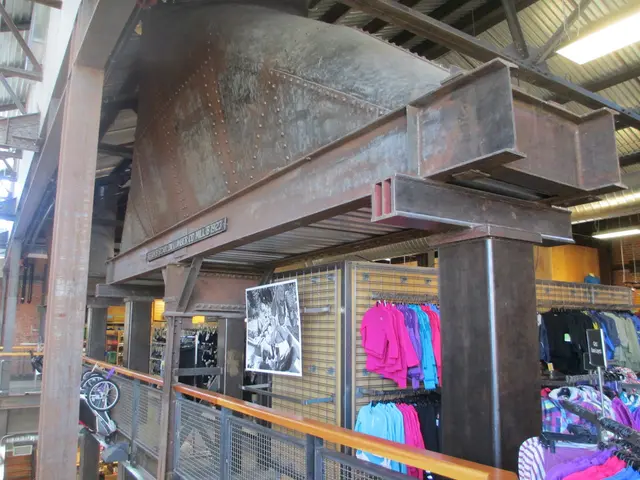New Southeastern Berlin Tram Depot Set to Boost Public Transport
South-east region will witness construction of a tramway manufacturing facility by BVG
Berlin's bustling public transport system is on the brink of a significant upgrade, with plans underway for a brand spankin' new tram depot in Treptow-Köpenick. Slated to operationalize around 2030, the gargantuan facility will be capable of housing up to 60 vehicles, providing crucial parking, maintenance, and repair services. This overhaul is bound to streamline workshop visits and elevate the system's efficiency.
According to Berlin Transport Authority (BVG), the project attained plan approval, and the meticulous planning for parking facilities, tracks, switches, and subterranean structures is currently underway. Construction is scheduled to commence next year, with a projected 2030 inauguration.
BVG CEO Henrik Falk expressed his enthusiasm for the project, praising the facility's flexibility. He believed that such adaptability would allow for quick and confident adjustments—be it through renovations or expansions. Nestled within the Adlershof district, the 50,000-square-meter site marks the former location of a grimy coal yard.
In the past, tram services in Köpenick were bogged down by an 'island' mode of operation due to the hazardous and eventual demolition of parts of the Wuhlheide Bridge. The Berlin Transport Authority faced daunting challenges, as there was no appropriate depot for maintaining these trams in this sea of isolation.
Diving Deeper
A quick glance at public transport systems across Berlin reveals a city committed to connectivity and efficiency. While explicit details about this new Treptow-Köpenick tram depot are hush-hush, the nature of such projects typically involves expanding capacity, alleviating congestion, and bolstering network dependability.
Located in the scenic, historically-industrial southeastern Berlin, Treptow-Köpenick, the eventual site of the new depot, could be a stepping stone toward improved local mobility.
Without specific figures, the size and timeline of the depot remain subject to conjecture. However, these endeavors usually call for intricate planning and construction phases that can stretch over several years.
This upgrade, tailored to boost public transport infrastructure, could give the system a substantial leg up in terms of efficiency and reliability. Moreover, it would help sustainability advocates breathe a collective sigh of relief by shrinking emissions and championing sustainable transport alternatives.
For a scoop on more precise details, snooping around local government announcements or transport authority press releases could prove rewarding.
The new tram depot in Treptow-Köpenick, located in the historically industrial southeastern Berlin, isn't just expanding capacity for the local public transport system; it's also expected to alleviate congestion and bolster network dependability, thereby improving local mobility. With plans to house up to 60 vehicles and projected operationalization in 2030, the facility could potentially have a significant impact on the city's finance industry, as increased transportation efficiency could lead to increased productivity and economic growth. Moreover, the switch to more sustainable public-transit options could positively influence the city's environmental footprint, particularly in the areas of finance and transportation, contributing to a greener future for Berlin.








